This month, we say goodbye to our seniors, who are heading off to a wide range of professional opportunities and graduate programs. And students who are returning to Carolina in the fall have exciting summer plans. What has a history major prepared them to do? They can tell you themselves:
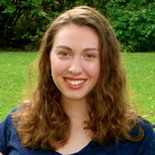 My time in the Carolina history department has given me a wide range of opportunities but, most importantly, it has shown me how to uncover narratives not otherwise told. Because our department is so diverse and rich, I have been able to learn about women fighting for Algerian independence, American Indian children forced into boarding schools, and slaves stolen from their homes in West Africa. Learning how to connect and understand narratives completely different than my own experiences has allowed me to engage with all sorts of people outside the classroom. Through my training in history, I learned not only the importance of research and writing, but also the ways to connect with and build on difference. My time in the Carolina history department has given me a wide range of opportunities but, most importantly, it has shown me how to uncover narratives not otherwise told. Because our department is so diverse and rich, I have been able to learn about women fighting for Algerian independence, American Indian children forced into boarding schools, and slaves stolen from their homes in West Africa. Learning how to connect and understand narratives completely different than my own experiences has allowed me to engage with all sorts of people outside the classroom. Through my training in history, I learned not only the importance of research and writing, but also the ways to connect with and build on difference.
–Georgia Brunner ‘17 |
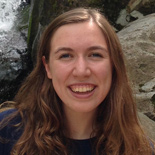 “I have been surprised at how much history has contributed to my success in biostatistics (statistics for medical research). Good communication skills, an ability to situate math in context, and an awareness of real-world problems are crucial to good biostatistics. My history major has strengthened all of these skills. In addition, closet historians seem to be everywhere in the biostatistics world. While interviewing for an internship at the National Cancer Institute, my prospective mentor confided that he had always wanted to be a history major, and that when he saw it on my application, he was immediately intrigued. When I walked into an interview for Harvard’s biostatistics PhD program, my interviewer leapt from his seat, declared, “You’re the history major!” and proceeded to pull four medical pamphlets from the 1800s from his bookshelves. We spent most of my interview examining the pamphlets, and then discussing my history thesis. I was a bit concerned that we didn’t talk about biostatistics at all, but I had a wonderful time, and it seems to have been for the best—I got in.” “I have been surprised at how much history has contributed to my success in biostatistics (statistics for medical research). Good communication skills, an ability to situate math in context, and an awareness of real-world problems are crucial to good biostatistics. My history major has strengthened all of these skills. In addition, closet historians seem to be everywhere in the biostatistics world. While interviewing for an internship at the National Cancer Institute, my prospective mentor confided that he had always wanted to be a history major, and that when he saw it on my application, he was immediately intrigued. When I walked into an interview for Harvard’s biostatistics PhD program, my interviewer leapt from his seat, declared, “You’re the history major!” and proceeded to pull four medical pamphlets from the 1800s from his bookshelves. We spent most of my interview examining the pamphlets, and then discussing my history thesis. I was a bit concerned that we didn’t talk about biostatistics at all, but I had a wonderful time, and it seems to have been for the best—I got in.”
–Elizabeth Chase ’17 |
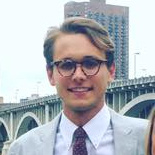 “What originally drew me to the history department was the excellent quality of teaching that I encountered on a consistent basis. My professors were reticent when it came to expressing their personal opinions, instead opting to pose questions that instigated some of the most thought-provoking discussions I’ve experienced at university. This afforded me the opportunity to learn how to think skeptically and critically not only about history, but also my other major, economics.” “What originally drew me to the history department was the excellent quality of teaching that I encountered on a consistent basis. My professors were reticent when it came to expressing their personal opinions, instead opting to pose questions that instigated some of the most thought-provoking discussions I’ve experienced at university. This afforded me the opportunity to learn how to think skeptically and critically not only about history, but also my other major, economics.”
–Trey Carpenter Flowers ‘17 |
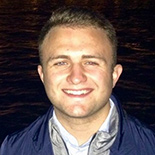 “As someone who is pursuing a career in medicine after graduation, I am frequently asked “Why history?” It is a valid question. Distant relatives and family friends find it difficult to conceive of a world where history could possibly prepare someone for a medical career. However, the history major developed in me the ability to think critically and write and speak persuasively, to intelligently engage ideas and conduct research. It also afforded me the opportunity to study abroad and travel in Europe meeting people from all over the world. These are unique skills and experiences that are not only valuable beyond the scope of a classroom, but will also translate directly into a medical career.” “As someone who is pursuing a career in medicine after graduation, I am frequently asked “Why history?” It is a valid question. Distant relatives and family friends find it difficult to conceive of a world where history could possibly prepare someone for a medical career. However, the history major developed in me the ability to think critically and write and speak persuasively, to intelligently engage ideas and conduct research. It also afforded me the opportunity to study abroad and travel in Europe meeting people from all over the world. These are unique skills and experiences that are not only valuable beyond the scope of a classroom, but will also translate directly into a medical career.”
–Jack Iasiello ‘17 |
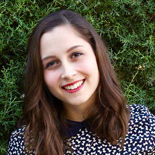 “My time as in the major has been defined by research. The UNC History Department not only afforded me endless opportunities to conduct original and creative research in the topics that interest me, but also the support of world-class professors and staff. I defended my senior honors thesis in March–the product of more than two year’s worth of investigation into the history of reproductive healthcare access in the Deep South. My major allowed me to experience fully the academic research, writing, and editing process: all skills I will carry with me into my future studies. I am currently applying for positions in editing and research, with an emphasis on the histories of marginalized identities.” “My time as in the major has been defined by research. The UNC History Department not only afforded me endless opportunities to conduct original and creative research in the topics that interest me, but also the support of world-class professors and staff. I defended my senior honors thesis in March–the product of more than two year’s worth of investigation into the history of reproductive healthcare access in the Deep South. My major allowed me to experience fully the academic research, writing, and editing process: all skills I will carry with me into my future studies. I am currently applying for positions in editing and research, with an emphasis on the histories of marginalized identities.”
–Justine Orlovsky-Schnitzler, ’17 |
